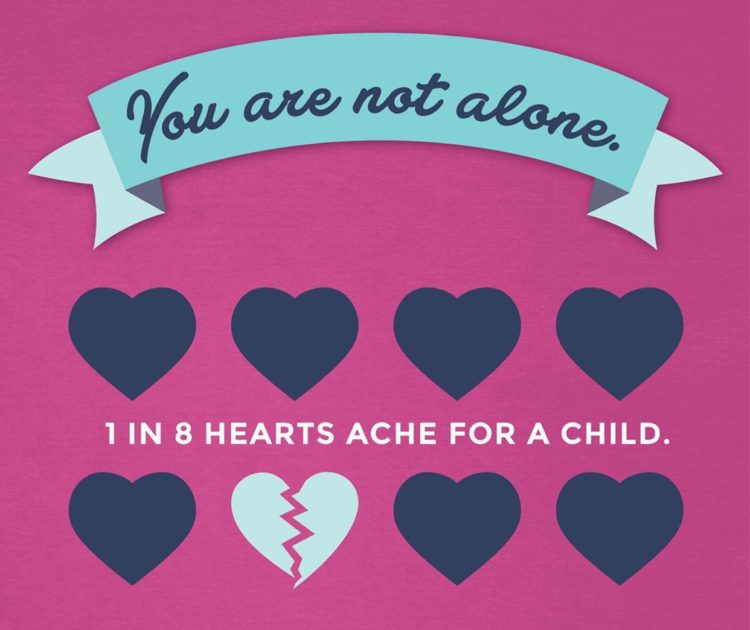National Infertility Awareness week is a movement which originated in America and is aimed at changing how people view infertility and remove the stigma around the subject of infertility. It is marked from the 21st to the 27th of April every year.
Infertility is diagnosed after a couple has been unable to achieve conception after one year of having regular unprotected sex. Up to 15% of couples are infertile, so it is not an uncommon condition, even though it may feel very lonely for the couples going through it.
Infertility is often a couple’s problem, one that must be faced as a team. When people think of someone who may have infertility, a picture of a man is not the initial picture that comes to mind. It may be surprising to some to know that 30% of infertility cases are related to male factor issues.
Male infertility is due to low sperm production, abnormal sperm function or blockages that prevent the delivery of sperm. Illnesses, injuries, chronic health problems, lifestyle choices and other factors can play a role in causing male infertility.
Problems with male fertility can be caused by a number of health issues and medical treatments. Some of these include:
Varicocele
A varicocele is a swelling of the veins that drain the testicle. It’s the most common reversible cause of male infertility. Although the exact reason that varicoceles cause infertility is unknown, it may be related to abnormal testicular temperature regulation. Varicoceles result in reduced quality of the sperm.
Treating the varicocele can improve sperm numbers and function, and may potentially improve outcomes when using assisted reproductive techniques such as in vitro fertilization.
Infection
Some infections can interfere with sperm production or sperm quality or can cause scarring that blocks the passage of sperm. These include inflammation of the epididymis (epididymitis) or testicles (orchitis) and some sexually transmitted infections, including gonorrhea or HIV. Although some infections can result in permanent testicular damage, most often sperm can still be retrieved.
Tumors
Cancers and nonmalignant tumors can affect the male reproductive organs directly, through the glands that release hormones related to reproduction, such as the pituitary gland, or through unknown causes. In some cases, surgery, radiation or chemotherapy to treat tumors can affect male fertility.
Ejaculation issues
Retrograde ejaculation occurs when semen enters the bladder during orgasm instead of emerging out the tip of the penis. Various health conditions can cause retrograde ejaculation, including diabetes, spinal injuries, medications, and surgery of the bladder, prostate or urethra.
Some men with spinal cord injuries or certain diseases can’t ejaculate semen, even though they still produce sperm. Often in these cases sperm can still be retrieved for use in assisted reproductive techniques.
Problems with sexual intercourse
These can include trouble keeping or maintaining an erection sufficient for sex (erectile dysfunction), premature ejaculation, painful intercourse, anatomical abnormalities such as having a urethral opening beneath the penis (hypospadias), or psychological or relationship problems that interfere with sex.
Some other causes of male infertility include:
Drug use
Anabolic steroids (commonly used by body builders) taken to stimulate muscle strength and growth can cause the testicles to shrink and sperm production to decrease. Use of recreational drugs such as cocaine or marijuana may temporarily reduce the number and quality of your sperm as well.
Alcohol use
Drinking alcohol can lower testosterone levels, cause erectile dysfunction and decrease sperm production. Liver disease caused by excessive drinking also may lead to fertility problems.
Tobacco smoking
Men who smoke may have a lower sperm count than do those who don’t smoke. Secondhand smoke also may affect male fertility.
Weight
Obesity can impair fertility in several ways, including directly impacting sperm themselves as well as by causing hormone changes that reduce male fertility.
These factors listed may contribute of male factor infertility, but in many cases of infertility, there is no identifiable cause found, both with the male and female partners. Making a baby requires team effort and there should be no blame game when it comes to infertility. The best approach is to see a specialist for comprehensive investigation of both partners and if any treatable causes are found, then they can be treated and if no (treatable) causes are found then the couple may wish to consider the option of assisted reproductive techniques such as In Vitro Fertilization.
Infertility can be an emotionally complex journey and it is important for us to always be sensitive around our friends who may be going through this. It is also important to destigmatize assisted reproductive techniques as this is sometimes the only hope for couples dealing with infertility.







